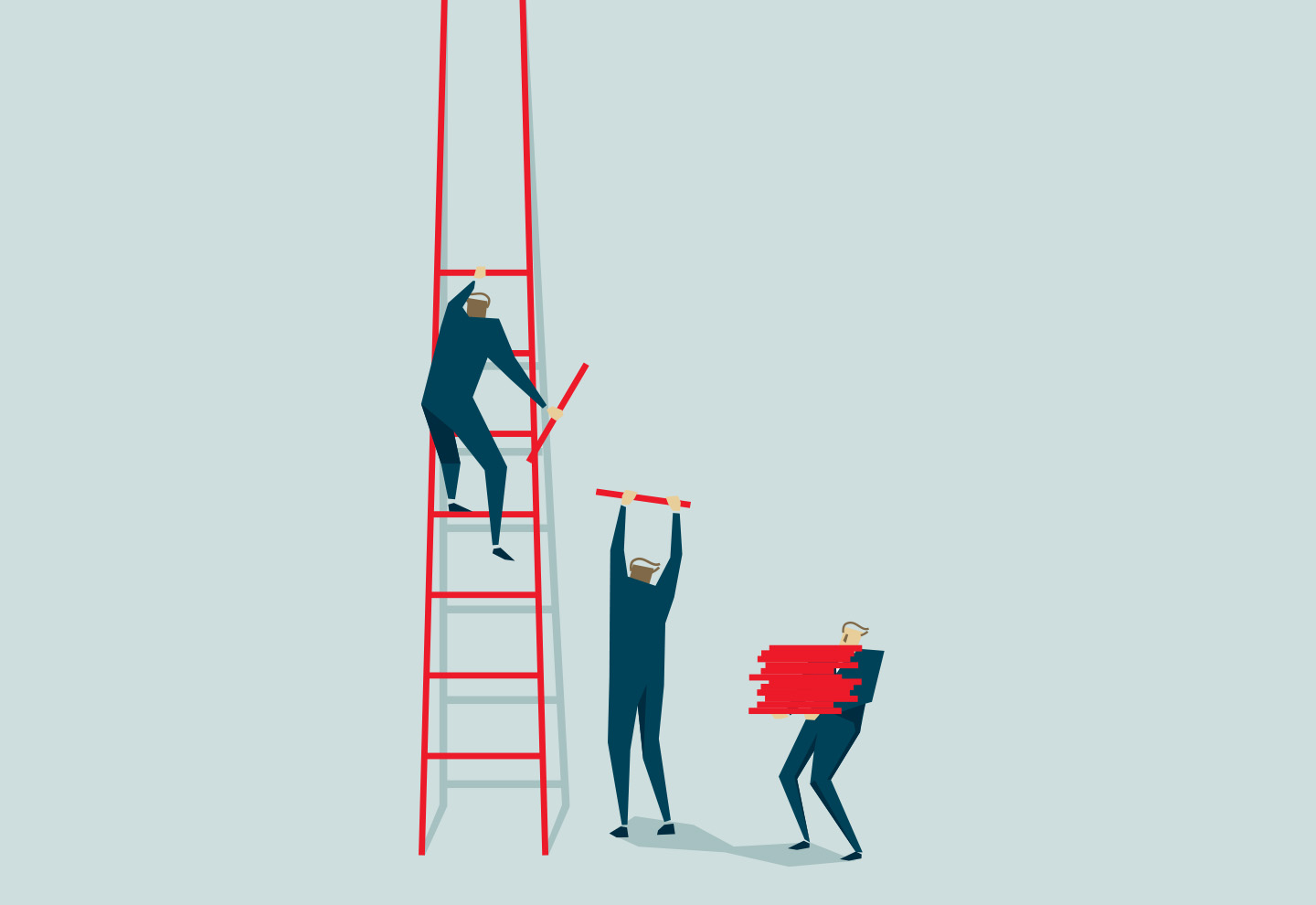
In an era of unprecedented transformation, coupled with the COVID-19 pandemic, humanity is being put to the test – not least in how we work together to solve the many, complex problems of our time.
The current crisis, unlike many before it, affects all of us, collectively. As a result, IMD Professor of Family Business and Entrepreneurship Peter Vogel argues that we must look to holistic and orchestrated multi-stakeholder efforts to find solutions, combining the agility and passion of NGOs, entrepreneurs, enterprising families and philanthropists with the leverage and influence of governments and international organizations.
“In this multi-stakeholder effort, philanthropic families play a critical role, and we see them gaining importance in addressing global challenges,” said Professor Vogel, also Director of IMD’s Global Family Business Center and Debiopharm Chair for Family Philanthropy. “They are in a unique position because they can leverage their human, social and financial capital, as well as their long-term mindset and reputational capital in order to do good.” But how can families ensure that their giving achieves lasting impact?
In this webinar, Professor Vogel and Maria Ahlström-Bondestam, Co-founder and the Chair of the Board of Eva Ahlström Foundation, explore the universe of family philanthropy and discuss emerging trends as well as identities and patterns in philanthropy, offering aspiring as well as established philanthropists an insight into the methods of successful philanthropic families and providing an opportunity to explore new ways to approach or reshape their own giving.
Philanthropy has come a long way from its origins. What Professor Vogel calls “the three waves of philanthropy” has brought us from traditional charitable giving to where we are today, with a number of noticeable trends:
- the rise of a new breed of megadonors and, paired with their changing ambitions, the rise of spending down funds
- the rise of effective and impact-driven giving
- an increasing focus on issues rather than places
- the democratization of giving as a result of digital technology
- the rise of cohesive giving, trying to find a broader and more purpose-oriented holistic strategy
- a growing desire among philanthropists to be actively involved
- a changing pattern of giving driven by the next generation of wealth owners
“Philanthropy is clearly getting more organized and professionalized. This observation has triggered us to start working on a range of frameworks and toolkits that allow philanthropic families to think about giving in a very strategic and logical manner,” Professor Vogel said. His team is currently working on a new book called “The Family Philanthropy Navigator”, which will be published in Q4 of this year; a hands-on, practical and actionable guide for both aspiring and established philanthropists.
At the heart of any effective philanthropic journey is a structured approach to the purpose, scope, scale and method of giving. Maria Ahlström-Bondestam explained that her family’s motivation to give was rooted deeply in its value system and a shared sense of responsibility.
“We sincerely believe in doing the right thing, based on universal values such as honesty, empathy, respect and justice,” she said. “Unfortunately, a good heart and doing the right thing will not change our societies or the world; we need action, we need collaboration, and we need real change.”
The Ahlström family business dates back to 1851, with interests ranging from fiber-based materials to industrial technology, and employs about 15,500 people in 29 countries. The Eva Ahlström Foundation, founded in 2010 by a group of female heirs, works mainly with UNICEF to support children and families in Finland and around the world.
The family’s foundation is leading by example as one of an increasing number of philanthropic foundations embracing greater professionalism and oversight to ensure that good intentions are turned into tangible impact.
“We see our donations as investments and like to differentiate between charity and strategic giving. Strategic giving defines a problem, solves it and scales up the results for sustainable impact,” Ahlström-Bondestam said.
“We expect the same ROI (return on investment) from our investments in UNICEF as from any investment. The difference is that we don’t expect a direct monetary return. The returns come in the form of a safe child who grows up to become a responsible adult who contributes to the community.”
With around 300 attendees from all over the world, this timely webinar offered valuable insights into more effective giving for active philanthropists as well as inspirational food for thought for roughly half of our participants who, according to our webinar poll, had yet to begin their own philanthropic journeys.
If you have specific questions about this webinar, your family’s philanthropic current or future activities, and your family business or office, please contact the IMD Global Family Business Center.
To view all webinars, please visit our Leading in Turbulent Times page here.
Research Information & Knowledge Hub for additional information on IMD publications
Understanding conflict in family businesses is a complex but essential study area for practitioners and academics. To enhance theoretical precision and provide practical insights, this article presents a comprehensive framework of family business ...

Decades of stability can unravel overnight, but sustaining both family harmony and corporate success is a perpetual challenge. Succession is among the buzzwords as all eyes are on City Developments Limited (CDL), where a bitter leadership feud has...
An organization's purpose is the fundamental reason why a company exists, going beyond the simple pursuit of profit. It reflects the core values, mission and impact that the company wishes to have on society. Often, when we talk about purpose , th...
Italian entrepreneurial families can ensure their continuity through structured governance strategies, effective family wealth management, engagement of new generations, and the enhancement of their legacy. The Objectives-Resources-Governance mode...
Consumer preferences are changing, wherein brands with a pronounced local identity are garnering increased favorability. While family firms often embody this concept, there is limited consumer-focused research on its role in family firm management...
Biases and paradoxes are inherently context-dependent phenomena, as they are influenced by various contextual factors that can either magnify or diminish their prominence. In the realm of family entrepreneurship, these contextual intricacies are p...
Digital product innovation (DPI) is critical for the survival of firms, especially those operating in traditional industrial-age industries. While research has started to investigate digital innovation in family firms (FFs) considering them as a m...
in Journal of Family Business Strategy June 2025, vol. 16, no. 2, 100660, https://doi.org/10.1016/j.jfbs.2025.100660
Research Information & Knowledge Hub for additional information on IMD publications
Research Information & Knowledge Hub for additional information on IMD publications
Research Information & Knowledge Hub for additional information on IMD publications
Research Information & Knowledge Hub for additional information on IMD publications
Research Information & Knowledge Hub for additional information on IMD publications
Research Information & Knowledge Hub for additional information on IMD publications
Research Information & Knowledge Hub for additional information on IMD publications
in Journal of Small Business Management March 2025, vol. 63, no. 2, pp. 590-619, https://doi.org/10.1080/00472778.2024.2326581
Research Information & Knowledge Hub for additional information on IMD publications
in Small Business Economics March 2025, vol. 64, pp. 935–956, https://doi.org/10.1007/s11187-024-00931-1
Research Information & Knowledge Hub for additional information on IMD publications
in Entrepreneurship Theory and Practice March 2025, vol. 49, no. 2, https://doi.org/10.1177/10422587241268029
Research Information & Knowledge Hub for additional information on IMD publications



